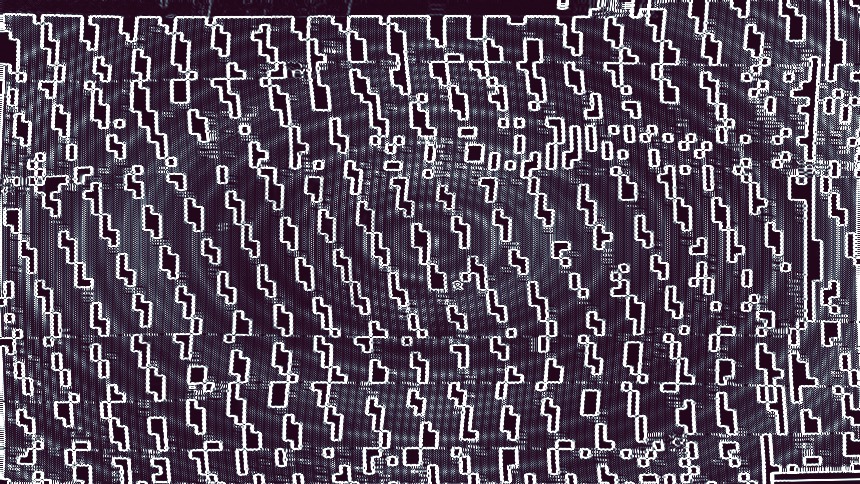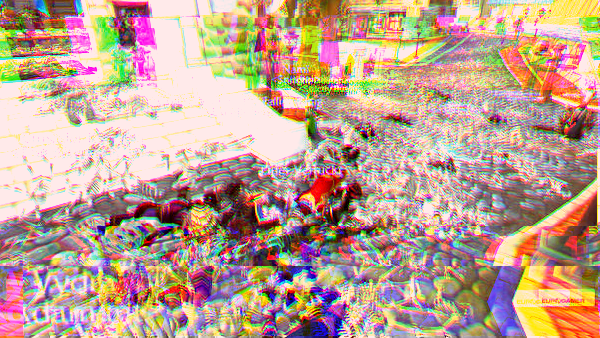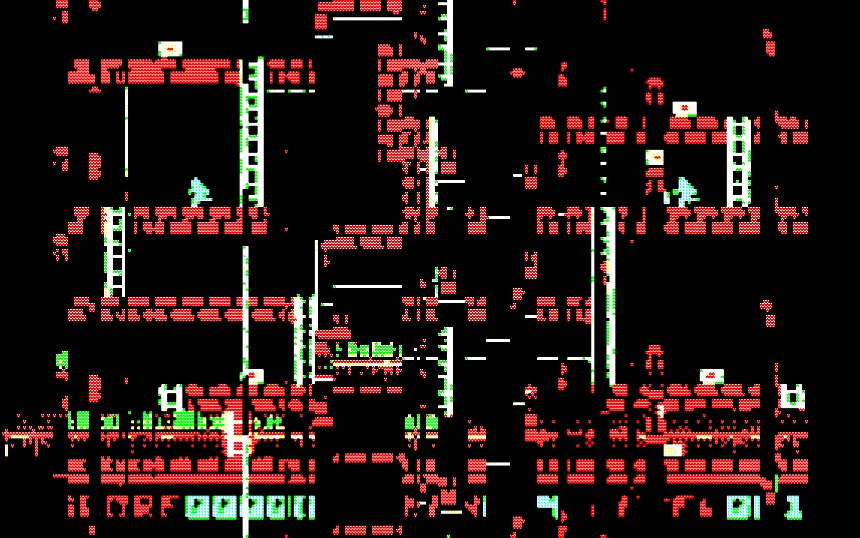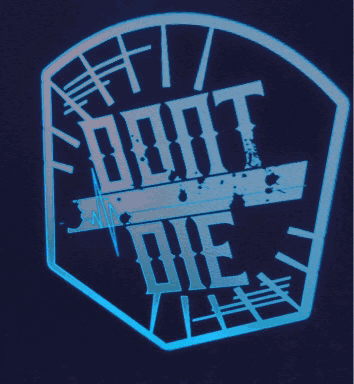- Douglas
My name is Douglas Rushkoff. I'm the author of a bunch of books on the way interactivity and new technologies have changed the way we think, interact, do business, and create values. I've written a couple of books that are directly involved with video and computer gaming. I guess the most important of those was called Playing the Future: How Kids' Culture Can Teach Us to Thrive in an Age of Chaos. It looked at how videogames serve a first-person, self-directed narratives through a world and how that’s so very different from books or television, which are more third-person, vicarious adventures through a predetermined heroic journey.
I most recently wrote a book called Present Shock: When Everything Happens Now, that takes that idea to the fullest and asks, "What does it mean when we're living in a digital landscape that is structured very much like a videogame? How is that different from real life? What kinds of behaviors does it engender and how do we retain our connection to humanity in the midst of all that?"
I was born on February 18, 1961, so the ageist mathematics will be up to you. I'm 5'6" and a half. I'm Jewish. My father's side is Moldavian Russian Jews who escaped the pogroms. My great grandfather got hanged in his store window. My other side, Romanian Jews who escaped similar crises over there to come to New York, make babies, and lead to me.
I now have a new job. I'm a professor of media theory and digital economics at Queens College, CUNY, where I'm helping start a new master's program looking at the intersection of media and culture.
- David
Yeah, the way that I think of you and your work is you seem to have a deep curiosity and maybe sympathy for subcultures. Like you take a high-level cultural view so that outsiders who are just vaguely curious can understand them.
- Douglas
Yeah, I'm interested in all subcultures, especially weird subcultures, as expressions of our collective subconscious rumination. Everything from furries to NASCAR all reflect deep human urges, but the weirder, fringier subcultures exist in that weird liminal place between humans and their dreams; or humans and psychedelic trips; or humans and technology; or individuals and groups. So I'm really interested in those edge cultures that challenge boundaries. You know, I wouldn't be interested in ISIS per se, but I would be interested in people who respond to ISIS media.
You know, what is that?
- David
That's a sub-subculture, but it is a group.
- Douglas
Right. And they use game imagery to try and attract people!
- David
So, yeah, I was going to ask what your perception was of the videogame industry?
- Douglas
The videogame industry?
- David
Yeah. Or, also, the audience.
- Douglas
They're two different things.
- David
Is this a similar thing to what you were saying about ISIS and the people who respond to ISIS?
- Douglas
Yeah, almost. The videogame industry is like any other industry, right? They are a panicked industry looking fearfully at a contracting market and wondering whether they need to go into the direction of advertising, which would mean creating more PC titles -- I mean, politically correct titles -- that advertisers can feel comfortable appearing in. Or do they adopt a pay-to-play model, in which case they're going to move increasingly into what we used to call the Jerry Springer-like extreme that will generate more excitement. So it's a big moment -- it's a hinge point for them.
Meanwhile, they have an extremely powerful technology at their disposal and they are capable of developing games that do classical conditioning through the gameplay, and the main thing that they're gonna classically condition is more play. Right? [Laughs.] To keep you on there and buying more games.
So right now you have the most psychologically persuasive media format ever developed that is being used by an industry to take up an increasing amount of our economic activity.
- David
How do you see the audience, which is a very broad group? I've been told it's maybe a billion people, all told, depending on how you define or choose to look at it?
- Douglas
I don't see the videogames culture as much different from human culture, from American culture or Western culture. I see it as pretty much the same. I do think -- given videogames' origins as a tool for military simulation that there's always gonna be an agonistic undercurrent to it. Even though violent games have been hacked by peaceniks, and there's games like Flower and things that have no conflict in them at all, there's always gonna be a kind of a hardcore element of people who use these games in extreme ways and to imitate or express stuff that we might not like to see in over-culture. You know, extreme violence and all that ripping off of heads. You know, violent little boy pulling the legs off spiders, grr, is gonna be in there.

- David
Sometimes that comes up in these conversations, where we talk about how the Internet started as a military tool.
- Douglas
I see that mythology as overstated in the case of the net, because it was really all these scientists. As I look at it, it was all these computer scientists convincing the army to pay for something that wasn't really gonna help the army at all. But games, head-mounted displays -- those were all military.
- David
But you think, like, there is a ghost in the machine and sometimes the original intentions of a thing will ripple into the audience or user base?
- Douglas
Yeah. And because the original hardcore gaming culture was, you know, boys in the back of the bus trading their warez. You know, it started as a particular kind of culture. So that remains in there.
So even if today you say, "Okay, anyone can be a fashion designer." That's absolutely true, but certainly there was a men's gay subculture that was at least major influence in the emerging fashion industry of the '50s, '60s, and '70s. Even though now you wouldn't necessarily call fashion culture particularly gay, you could still say that original culture has influenced the values and aesthetics of fashion today.
And that's true with anything. Even Boy Scouts, you know? Sure they could let gay people in now, but Boy Scouts will always have a little bit of that Christian military vibe.
- David
A legacy.
- Douglas
It's a legacy. So gaming has a legacy in a boy-hacker culture, that's true. But I wouldn’t blame that legacy for the Gamergate chauvinism that’s going on today. That’s just an excuse; it’s much more complicated. You could learn more about it studying Donald Trump’s frustrations than studying early gamer boys.
- David
So, I was gonna ask: You've studied way more subcultures than I have. What happens when they go bad or get cancer and just want to fight themselves?
- Douglas
I don't know. It's hard to generalize. So, you look at the mafia as a subculture. Right? It was able to maintain its subcultural integrity by being an illegal culture. You know, it's really really hard in the post-MTV era for any subculture to remain sub, because there are corporations who identify these subcultures before even the cool kids can and start marketing them to the mainstream in order to get money.
So, the main recipe for subcultural meltdown or frenzy or friction is when the outsiders, namely corporations, are impinging on the integrity of the subculture or selling it out too quickly so that the people who are inside then have to retreat to more extreme versions of themselves in order to evade detection.
So if you have some sort of regular hardcore music scene, death metal or goth or something like that, and then MTV and the shopping mall stores find out about it, and you want to remain a true death-metal person or a true goth, now you're gonna have to go into the more ultra-extreme version. So, where three piercings might have done before, once everyone at the mall has three piercings, now you need 60 piercings. Or you need to do something so outrageous that you can prove you are still in a subculture counterculture and not part of, you know, just Johnny Depp getting an earring on 21 Jump Street, which kind of blew the whole piercing thing out of the water.
- David
How do you think tech helps or exponentially exaggerates the ability facilitation for this sort of extremism in response?
- Douglas
The good part is that now you can "find the others," as Tim Leary recommended any one weird person should do. You can find the other people who are as extreme in whatever thing you care about from furries to firearms. You can find those people in that exact sub-classification of your sub-niche of your subculture. You can find them.
The first problem with that is you can end up in a mutually reinforcing silo where you don't get ventilation, you don't get exposed to contrary views or alternative perspectives. So you can really get drilled down into what you believe. And that happens most obviously with the red state/blue state fanaticism of any of these politically extreme silos.
So there's a reinforcement.
The second obvious problem is that the Internet allows for anonymous expression. Even if you've got a user ID that you care about, it's still not you.
- David
Yup.
- Douglas
You can burn that like that a disposable cell phone and start again. It's not just that the perception of liability is reduced, but the actual liability is reduced. [Laughs.] There's no repercussion. So if you are already experiencing the net primarily as a gaming space then Twitter and Facebook and the media are just extensions of that game. So, if you think --
- David
Is that true? It really bleeds in?
- Douglas
Yeah. It's not real, is it? Is it?
- David
Is anything real?
- Douglas
Yeah. Yeah. Things are real. I mean, people are real. Death is real.
- David
Yeah.
- Douglas
But I can see how someone would think that making a death threat on Twitter is not real. Especially when they're in a game so much of the time and they're talking to their friends saying, "I'm gonna kill you, motherfucker." We know they’re not going to actually kill us. They simply draw the "sacred circle" of play around a much bigger area. Like the guys who raided the in-world funeral of a human player in Warcraft. It was still in the game, right?
And so when they threaten someone online, even if they know they're not going to carry out a killing, if they make someone who's a figure of contempt for them afraid and upset and cry, they feel they’ve won. They think that's good, too, because they're trying to push away these sensitive PC people from gaming, anyway. Just like in the late 70’s, when we punks tried to scare away softie suburban kids from the clubs.
- David
Is this like Mark David Chapman stuff? It's all psychic pain at this point, but it's still very real and scary for people in the crosshairs. It doesn't matter that no one's been killed.
- Douglas
Right. It is real psychic pain. I mean, I would argue that -- not to defend them, but I would argue though that, believe it or not, the people who are inflicting this psychic harm, they believe that they are in equivalent psychic jeopardy.
- David
Yeah, I would agree.
- Douglas
They're incorrect, but there's also guys with guns in Wyoming who have forts and who really feel that they are in imminent danger from the sort of the Obama PC female-driven culture that's gonna force them to make reparations to the slaves. So, this is the same kind of fear. Now, the fact that it ended up focusing on a videogame award and a reviewer and all that, that's a perversion that's ultimately immaterial except insofar as someone might have been exploiting this rage in order to try to change the agenda or the results of some contest.
As if these awards really matter. But if they matter in gamer culture to the extent that an Oscar matters in Hollywood, well -- you know, Harvey Weinstein will spend a few million dollars to try to get an Oscar for one of his movies. If gaming awards matter that way, then using an angry subculture as a means to intimidate some voters or committees to make different sorts of decisions, then so be it. Or it could just be some publicist doing a nefarious thing that got out of control. But even if it is, you can't really blame the person who lit the fuse. It's really the fact that the dynamite is there at all which has to be looked at.
- David
Yeah. I've heard it said that people were trying to light any fuse and this happened to be the one that happened to ignite and then they organized behind. But what's weird about it happening in videogames is it's always been a haven for nerds, and that's a label people in that subculture would wear proudly.
- Douglas
Yeah, but I was one of those kids.
- David
So was I.
- Douglas
And, you know, this is back in the Atari era and Nintendo and stuff. The "real games." [Laughs.] It's funny that I say it that way, just being old. The old games. Just cartridges and consoles.
- David
And they were also physical products, which means they did also feel a little more real.
- Douglas
Yeah, exactly. It just felt like a thing. Actually, still -- I mean, is the cube thing around? Is that around still?
- David
GameCube?
- Douglas
Yeah.
- David
No. They have a new system now called the Wii U, which is like a second-screen experience thing.
- Douglas
Right, but it doesn't have carts, does it?
- David
No. CDs.
- Douglas
Ah! Ah!
- David
You're shaking your fists, it sounds like.
- Douglas
Losers! [Laughs.] I personally like a game that's on a computer that uses my little arrows, like, Lode Runner and, you know, once it got up to Wolfenstein I wasn't sure if I was glad or sad. Because once games started to become simulations of things in the world rather than extensions of things in the computer, they actually got less interesting for me. They went from being a cool medium -- one where you think and fill in the details -- to a hot medium, where you get immersed in someone else’s pictures.

- David
So, within games, though, why is there a "right" sort of misfit or nerd and a "wrong" misfit?
- Douglas
Well, the wrong kind of misfits are mean to people. Right?
- David
Yeah, I mean, they're kinda assholes.
- Douglas
Right. That's why they're bad.
- David
But they don't think they're being assholes.
- Douglas
No. The -- All right. I'll tell you the real dark secret here. And this being on the record is fine, and it's not a bad thing, it's just a reality thing. Archetypally speaking, the Internet is a feminine space. The Internet is something you enter into, that you're enveloped by. The Internet goes hand in hand with the real feminism movement, in that for the last 2,000 years we've had stories and media about male tragic heroes that climb up an incline plane of tension, have a climax of some kind, and then get to rest, die, or sleep. You know, crisis, climax, sleep. Male orgasm curve. That's the way TV works and radio works and theater worked and novels work. Now we're on the Internet. The Internet works through a series of connections. There is no ending. There is no finale. There is no climax and sleep, there's just another connection, another connection, another connection and the more and more you connect, the more potentially euphoric it becomes, the more empathic it becomes, the more connected we all are, the more intimate it all is. That’s archetypally female.
What gamers are ultimately dealing with is that this medium that they believed was going to be dry and boylike and help them experience difference and antagonism is having the reverse effect. It's acting like water. It's connecting them to everyone and everything and all of a sudden this tool that they thought could prevent intimacy while still giving them orgasms and death thrills is now promoting intimacy on a level that human beings couldn't even imagine was possible 20 years ago, much less that we're experiencing today.
And that's the problem. That's really what the backlash is against. But that might be too heady a concept.
If you need an easy quote or something, you know, it's this: The Internet engenders levels of intimacy and connection that a lot of people are uncomfortable with, particularly when they turn to the Internet for the very opposite, for a sense of power and control.
- David
I was watching your documentary about MTV.
- Douglas
[Laughs.] Oh, Merchants of Cool. God bless.
- David
So, you were talking about MTV before and I was curious to get you to paint this in those terms and sometimes trying to think about how to even explain Gamergate to people outside of games -- and sometimes I wonder if it's like videogames' Altamont or Woodstock '99. But I don't know what that means or if it's even something you can actually say.
- Douglas
[Pause.]
It -- no. I mean, it's not. I mean, the reason why it's not is because first off, MTV Woodstock had no good intentions. It was a commercial exploitation of teen culture that was trying so hard to be extreme that it got real rapes. MTV practically used the tragedies to burnish their own authenticity. The whole thing was sick.
But the original Woodstock, say, and The Rolling Stones' concert you could look at as tipping points because they proved that this kind of love culture of the '60s just couldn't work. People can't be trusted, you know? [Laughs.] You can't just wish violence away. It's just there, and that really stoned people in large groups end up doing bad things, not just evolving. [Laughs.] I mean, that just happens.
You can't look at Gamergate as the equivalent kind of tipping point because this really is largely is still virtual. [Pause.] I hate to imagine what the actual equivalent of those would be.
- David
Online?
- Douglas
No.
- David
Oh.
- Douglas
What the actual, real-world equivalent of those would be. And that's the stuff that you don't even want to articulate because all you do is give people worse ideas.
- David
Yes. I'm curious, though, about what overlap or parallels you see with this stuff in games with others subcultures you've --
- Douglas
It's unique! The thing is you can't go -- this is not like anything that happened with TV, It's not like anything that happened with radio, and it's not like anything that happened in print. This is the digital difference. We are in a different culture.
- David
It's its own thing.
- Douglas
It’s its own kind of thing.
So, if anything, it retrieves -- [Sighs.] How to even begin this discussion? Okay: There's a great media theorist named Walter Ong. Right? And he wrote a lot about the shift of our society from an oral culture to a literate culture. You know, when we just talked, then we got text, and once we got text and could write things down, it changed our society. It made us more symbolic, we got monotheism, we got contracts and the law and accountability and we developed a sense of history and a sense of the future. Because once you could write something down, you could write the story that just happened, or you could write a contract that's going bind you into some future obligation. So, we got all these changes. It led to more dishonesty in things because now you weren't having to look at someone face to face when you communicated. There's all these different things, all these kinds of abstractions.
So then, we got radio and television and it was weird. It's like, well, what are those? Are those oral again? Because now people are talking at and you're listening to voices. And Ong said, "Well, yeah, they're oral." But he called it secondary orality because they were reading scripts but doing it on TV. You know, or, they were acting a part that was already written down or -- reading the news. What is that? Is it oral or is it literate. He's like, "No, it's oral but it's like, a secondary orality because it’s literacy in the oral form." So now you look at the Internet and I think what you actually get, what Ong would call it, it would be secondary literacy.
So, you bring back some of the values of the early literacy movement. Of text even before printing presses. So what was going on there -- so, while television and radio did engender a kind of tribalism, a connectivity, a big blue marble globalism, I think that now we're moving back into an almost monastic, medieval relationship to media. That these are almost -- it's like looking at text on TV. [Laughs.] It's weird.
- David
No. Yeah.
- Douglas
It's alienating, right? If you're watching a news story, at the same time there's a news crawl on the bottom. You are now distanced from the story. It's sort of classic Brechtian Alienation Effect. And that's sort of what's happening. So there's less of an integrated emotional person engaging with these media.
- David
I mean, I wonder where a lot of the reactions to things around videogames gets socialized or normalized -- and Donald Trump is actually a good comparison that plays into a bit of what you’re saying.
- Douglas
Donald Trump is actually deeply, deeply entertaining. Deeply. On levels that I'm embarrassed about, which actually brings us to Gamergate.They're both completely understandable if you recognize how the digital media environment is different from the television media environment. The television media environment engendered a cool, political correctness. An inclusive, IBM-like, big blue marble sensibility about the world because we can see the pain and suffering in all these different places.
It is the right medium for Kennedy, for Clinton, and for Hillary and for some ways for a global value system. It's the medium of internationalism, and the whole Rockefeller/CIA effort to make the world one place, one big picture. And it's partly because of the way it's structured: It's a satellite thing. We all watch the Olympics at the same time together.
The Internet engenders much more strident individualism, anonymous conversation. It flies in the face of political correctness and encourages -- if you can think of an inanimate object as encouraging -- and it's biased towards this sort of more raucous laddy boy porn-driven -- it's going to express the hidden and unarticulated and repressed kinds of ideas and expressions. So, we get Gamergate. We get Trump. We get all of these unexpressed politically incorrect cultural anxieties coming out and it's sad but it's gotta be looked at seriously rather than just ignored.
- David
Well, Donald Trump is the same thing as -- are you familiar with the show Breaking Bad?
- Douglas
Yeah, what's wrong with Breaking Bad? We're not supposed to like that?
- David
No, don't you remember? You're supposed to violently like it.
- Douglas
Okay.
- David
But people were really upset or angry at not just the character of Walt's wife but the actor who played her.
- Douglas
The wife?
- David
Yeah. Don't you remember?
- Douglas
No, I missed the whole thing. Of course, I didn't watch it until after the last week when they were showing the final episode, so I just binged the whole series in those four days.
- David
So, but near the end --
- Douglas
She buys the car wash.
- David
Right. But Anna Gunn responded to a ton of Internet misogyny and people --
- Douglas
But what was it based on? Her looks? Her acting?
- David
She got in the way of his "fun," which was cooking meth and destroying his family.
- Douglas
I thought she went along with it. Didn't she -- wasn't she, like, Mrs. Soprano?
- David
She did, but you can't necessarily introduce logic into this stuff. They were angry at her.
- Douglas
They were angry. So boys were angry at her that she was harshing their mellow of crystal-meth coolness.
- David
Yes.
- Douglas
But what about the cerebral palsyic son? They hate him, too? He was a harsh on the mellow.
- David
No, it was just her.
- Douglas
The son was less approving of it than she was! Wow, all right. I don’t even understand that.
- David
What’s also hard to understand or figure out is, like, you have portions of the gaming subculture trying to exact justice. You see it elsewhere on the Internet, too, of course. But how does justice even work online?
- Douglas
I don't know that it's trying to enact justice. That's what they're saying. They're trying to experience power and control. They're trying to see the impact -- their own impact on others.
- David
They're trying to convince themselves that they matter?
- Douglas
That they're potent.
You know? And there's the good old-fashioned Le Bon Madness of Crowds phenomenon here, too. I mean, I don't know if you've ever been subjected to a 4chan attack. I got one after writing an article once on them. Once they actually read the article they called off the attack, but it was a bad day or two, because it was an article I wrote in defense of them but Daily Beast published it and they put on a kind of sensationalist headline, so the kids just went nuts.
It was like kicking a hornet's nest.
But from the other side, I got to see what it is to have the crowd come at you and start publishing pictures of your family and your house and ordering the assassins. Luckily none showed up. But there is a kind of a frictionless wilding that can happen in an online crowd where individuals don't feel particularly responsible for their actions.
Especially, if you've played World of Warcraft, you do it in gangs. [Laughs.] You know? You have a raiding group, a party.

- David
Is there anything games media or the game industry could do to assuage or address this toxicity?
- Douglas
Yeah, I mean, you've gotta do two things.
One, you've gotta look at it as -- however painful it is to some people -- not as bad as some other things that could happen. So, I think looking at is as a kind of a canary in the coal mine of our culture and saying, "Okay. If there are these people who are willing to engage this way virtually, what frustrations are they expressing and how can we address this frustration in a way that's healthier for everybody? How can we take this urge and make it constructive?" Whether it's when you take military-minded people and give them football to play so they don't have to beat up other people -- you know, is there some purgative effect to this that needs to be provided somewhere else? Is there a conversation about boys that needs to be had? Do we look at a book like Susan Faludi -- she wrote a book called Stiffed about how laddy-boy culture and all those magazines are a reaction to being under attack. Since the Oprah Winfrey days, white males have just been attacked by every form of media and they need to feel okay about themselves or they're gonna go fucking crazy. So, can we do kind of a social-psycho analysis on what's going on? You know, group therapy on this. Or can we read the signals and adjust accordingly?
As far as the game industry? Well, the game industry, you gotta remember, these are the shareholders of companies who don't care about anything but their share prices going up. Right? This is your 401(k) plan and you selling a stock because it's not working right.
- David
Right.
- Douglas
Those shareholders and those companies need to be convinced that the most important market is in jeopardy and therefore they need to create media and examples of game stars who are tolerant of female players and PC games and games that learn or games that teach and all that kinda stuff. They need to highlight people who are tolerant of that or even encouraging of it. So, you know, if in skateboard culture Tony Hawk is up there saying, "I love girl skaters, they fuckin' rip. They thrash, they are the best," then kids are not gonna be pushing girls off the vert ramps or something.

That's what they have to do. They have to show that the ultimate role models in this world are doing that.
But of course what would happen is the subculture that hates it would say, "Oh, look at them. They've been forced to do this. They're selling out."
"There's a conspiracy."
- David
Yeah, I hate it when corporations sell out.
- Douglas
Yeah, there you go. So it has to be done properly, but yeah. That would be the thing. It's to bring those cultures out.
Even punk -- I mean, my experience of punk was almost like it was fucking Occupy or something. When you were in it, you did not see it as violent or anything. People thought this was some violent, angry, horrible thing and it was just about an aggressive form of love. [Laughs.] But you know what I mean?
- David
[Laughs.]
- Douglas
We were not killing people. They were not --
- David
It's a different sort of passion.
- Douglas
Yeah.
- David
Sometimes the Stanford Prison Experiment comes up in these conversations, and I'm a little curious if as we talked about before: If people are feeling they have to mete out justice or think that's where they're doing, where are they getting the message that that's the role they need to step into or have been made to occupy?
- Douglas
You mean, like, why do gamers feel the need to defend game culture, or right-wingers need to defend the American way or something?
The Internet connects people. You know, for all of its ability to silo us and reinforce our prejudices, it also simultaneously connects us to those against whom we are prejudiced. That's a real rock and a hard place.
So, we become more extreme and are forced to associate more with those we've been radicalized to hate.
- David
What do you think videogames have achieved?
- Douglas
They have successfully colonized the entertainment space. They have in some ways steered the R&D of home computing technologies. They've introduced a new participatory form of storytelling on a mass level. And they've changed the essential structure of our myth-making, and we are still reeling under the consequences of that.
This is as big a shift as taking the spoken stories of the Jewish people and writing them down as a Torah. You know, that was a big, big shift from oral culture to written culture. And now, this is as big as that. So, the way we look at the world, the way we understand ourselves, the relationship of the individual to everybody else has changed.
And these are the growing pains of that change.

